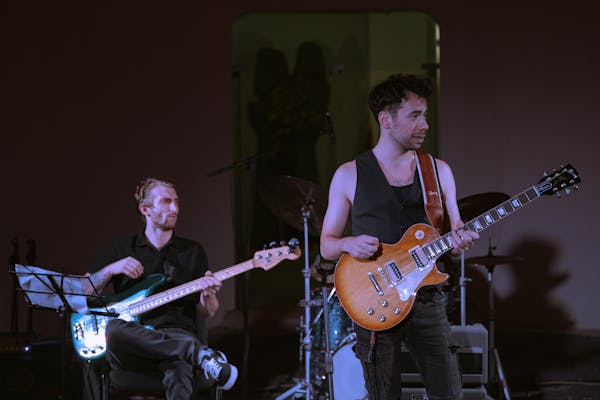In music, performance usually refers to the interpretation and realization of a musical piece. This process involves a number of different variables. These variables can include a variety of playing techniques and various parameters such as articulation, phrasing, and vibrato. Check out more about concert at The Eagles Eagles tour dates.
Studies that compare different performances often focus on extracting and analyzing various parameters in order to identify commonalities or differences. However, these results can be difficult to interpret.
Practice
Music performances give musicians an opportunity to gather feedback from people who love and appreciate their work. This special feedback is rare and should be embraced whenever possible.
Practice should be done in conditions that are as close to the performance setting as possible. This will help prevent a performance situation from triggering a response that will interfere with the musician’s ability to play well.
Practicing under these kinds of conditions will also help the musician become accustomed to and better able to handle the physical sensations of playing in a live performance environment. These sensations are a natural part of the performance experience and can include changes in heart rate, perspiration and trembling.
Besides practicing under realistic performance conditions, the musician should also practice using flow techniques to enhance their learning experience. These techniques include focusing on relaxation strategies, sensual immersion, problem-solving and imaginative ideas.
Find a Good Teacher
A good music teacher can make all the difference. Finding one requires asking for recommendations, checking out credentials, and sitting in on a lesson.
Generally, teachers with more experience have more students who stick with them longer than those with less. They know how to inspire their students with music they love, and find creative ways to help them get through the hard parts.
A true professional artist is also a master teacher. They understand how to build student’s musical foundation, and can guide them to an artist level of performance. They have the knowledge and understanding to be able to communicate difficult concepts and passages clearly and effectively. This is essential to a successful learning process. They can save students a lot of trial and error by showing them the right path to success.
Be Prepared
When musicians are well-prepared, they can forge a deep connection with their audience. Thorough preparation also helps them overcome stage jitters, turning them into a source of adrenaline that energizes the performance.

However, if a musician becomes too self-focused, they can turn a positive flow feeling into something more negative such as anxiety or even stage fright. These negative feelings arise because of a lack of confidence, faulty or destructive thoughts and a distorted awareness of their motoric actions.
This is why it is important to practice using the correct focus points to ensure a high-quality performance. This includes relaxation strategies, sensual immersion and expressive goals. Practicing these flow techniques allows musicians to maintain a relaxed and focused focus throughout their performances. It’s a powerful way to make the experience for audiences truly memorable.
Don’t Worry About Mistakes
It’s important to remember that mistakes are inevitable and that they don’t need to have a big impact. Your audience likely won’t even notice your mistakes. They’re much more likely to focus on the good parts of your performance.
You tend to immediately spot all the little imperfections during a concert, but the audience doesn’t. The reason for this is that your brain doesn’t have a reference point for the changes in performance parameters.
Musicians to some extent determine aspects of the music they play, including tempo, phrasing, dynamics and even pitch. This allows musicians to express themselves, but it also means that they can make mistakes. If the music is communicated and connects with listeners, that is what matters, not whether or not there are some small mistakes in it.
Get the Crowd Involved
Think of your favorite music performances and the bands you would pay any amount of money to see. What makes them so memorable? Chances are, it’s the way that the band engulfs their audience. They have stage presence that is unmatched by other musicians. Whether it’s their movements, gestures, or banter between songs, they know how to interact with their audience.
Greet your audience at various times throughout the show and introduce yourself and your band members. It’s also a good idea to include anecdotes or personal stories to establish a connection with the crowd. Remember, your audience is there to have a fun time, so don’t forget to share that with them! Also, try not to give away everything all at once. Keep the audience guessing and they’ll be eager to come back for more!
